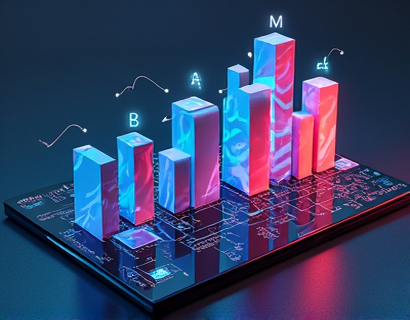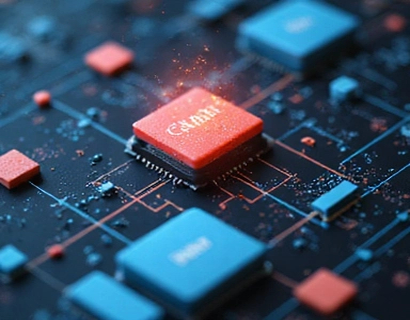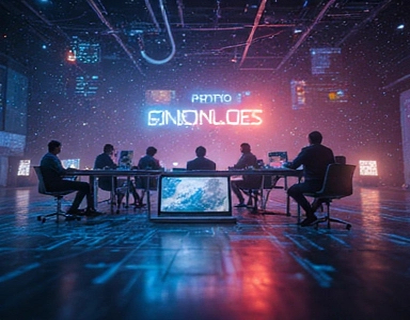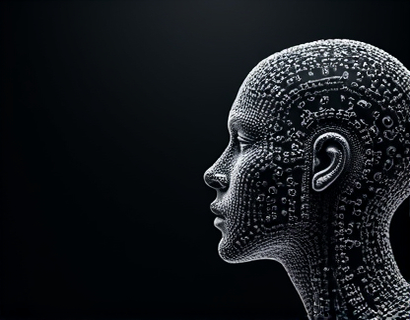Smart Contracts and Management Tools: Revolutionizing Governance for Enhanced Democracy and Participation
In recent years, the integration of smart contract technology and advanced management tools has emerged as a transformative force in the realm of governance. This evolution promises to revolutionize traditional democratic processes, making them more accessible, efficient, and participatory. By leveraging the inherent properties of smart contracts—automation, transparency, and immutability—along with sophisticated management tools, it is possible to create a new paradigm of governance that empowers citizens and organizations alike.
The Role of Smart Contracts in Governance
Smart contracts are self-executing contracts with the terms of the agreement directly written into code. They run on blockchain technology, a decentralized and distributed digital ledger that ensures transparency and security. In the context of governance, smart contracts can automate various administrative and legislative processes, reducing the need for intermediaries and minimizing the potential for human error or manipulation.
One of the primary advantages of smart contracts in governance is their ability to enforce rules and regulations automatically. For instance, a smart contract can be programmed to release funds for a public project only when specific milestones are met and verified by the network. This ensures that public resources are used efficiently and transparently, building trust among citizens.
Enhancing Transparency and Accountability
Transparency is a cornerstone of democratic governance. Smart contracts inherently provide a high level of transparency by making all transactions and agreements visible on the blockchain. This visibility allows citizens to monitor government actions and decisions in real-time, reducing the opacity that often leads to corruption and mismanagement.
Moreover, the immutable nature of blockchain ensures that once a transaction is recorded, it cannot be altered or deleted. This feature enhances accountability, as officials and organizations can be held responsible for their actions. In cases where discrepancies or fraud are detected, the blockchain provides a clear and tamper-proof record for investigation and resolution.
Streamlining Decision-Making Processes
Traditional decision-making in governance is often slow, cumbersome, and prone to delays. Smart contracts and management tools can streamline these processes by automating routine tasks and facilitating more direct and efficient communication between stakeholders.
For example, a smart contract can be designed to manage budget allocations, ensuring that funds are distributed based on predefined criteria and timelines. This not only speeds up the process but also reduces the potential for political interference and favoritism. Additionally, these tools can enable real-time tracking and reporting, providing stakeholders with up-to-date information on project progress and financial expenditures.
Boosting Community Engagement and Participation
One of the most significant benefits of integrating smart contracts and management tools into governance is the enhancement of community engagement and participation. By making democratic processes more accessible and user-friendly, these technologies can encourage broader citizen involvement in decision-making.
Digital platforms powered by smart contracts can facilitate online voting, surveys, and public consultations, allowing citizens to voice their opinions and contribute to policy-making from the comfort of their homes. This not only increases participation rates but also ensures that a diverse range of voices is heard, leading to more inclusive and representative governance.
Furthermore, these platforms can provide educational resources and tools to help citizens understand complex issues and make informed decisions. By demystifying the governance process, individuals are more likely to engage actively and take ownership of their community's future.
Case Studies and Real-World Applications
Several initiatives around the world are already leveraging smart contracts and management tools to enhance governance. One notable example is the city of Zug in Switzerland, which has implemented a blockchain-based identity management system. This system allows residents and businesses to interact with the city's services securely and efficiently, reducing bureaucratic hurdles and improving citizen satisfaction.
Another example is the use of smart contracts in voting systems. Estonia, a pioneer in digital governance, has adopted an e-voting system that utilizes blockchain technology to ensure the integrity and transparency of elections. This has not only increased voter turnout but also bolstered public confidence in the electoral process.
Challenges and Considerations
While the potential of smart contracts and management tools in governance is vast, several challenges must be addressed to ensure their successful implementation. One of the primary concerns is the technical complexity and the need for a skilled workforce to develop and maintain these systems. Governments and organizations must invest in training and education to build the necessary expertise.
Another challenge is the issue of accessibility. Not all citizens have equal access to digital technologies, which can lead to a digital divide. To mitigate this, it is crucial to develop inclusive solutions that cater to various demographics, including those with limited internet access or digital literacy.
Privacy and security are also paramount. While blockchain offers robust security features, the sensitive nature of governance data requires additional layers of protection. Implementing advanced encryption and access control mechanisms is essential to safeguard against potential threats.
Future Prospects and Innovations
As smart contract technology and management tools continue to evolve, the possibilities for enhancing governance are vast. One area of innovation is the integration of artificial intelligence (AI) with smart contracts to create more intelligent and adaptive systems. AI can analyze data patterns and predict outcomes, enabling more informed and proactive decision-making.
Another promising development is the creation of decentralized autonomous organizations (DAOs) within governance frameworks. DAOs are community-driven entities governed by smart contracts, allowing for decentralized and democratic management of resources and projects. This model can empower grassroots movements and foster a more participatory approach to governance.
Additionally, the use of interoperable blockchain platforms can facilitate collaboration between different governments and organizations, creating a more connected and cohesive global governance ecosystem. This interoperability can lead to shared best practices, standardized processes, and enhanced cross-border cooperation.
Conclusion
The integration of smart contracts and management tools represents a significant leap forward in the evolution of governance. By automating processes, enhancing transparency, and boosting community engagement, these technologies have the potential to create a more democratic and participatory society. As more individuals and organizations embrace these innovations, we can expect to see a new era of collaborative and effective governance that truly serves the needs of all citizens.











































